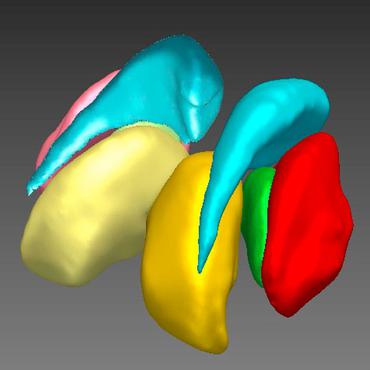Search Results for author: Tao Zhong
Found 5 papers, 2 papers with code
Machine Learning Insides OptVerse AI Solver: Design Principles and Applications
no code implementations • 11 Jan 2024 • Xijun Li, Fangzhou Zhu, Hui-Ling Zhen, Weilin Luo, Meng Lu, Yimin Huang, Zhenan Fan, Zirui Zhou, Yufei Kuang, Zhihai Wang, Zijie Geng, Yang Li, Haoyang Liu, Zhiwu An, Muming Yang, Jianshu Li, Jie Wang, Junchi Yan, Defeng Sun, Tao Zhong, Yong Zhang, Jia Zeng, Mingxuan Yuan, Jianye Hao, Jun Yao, Kun Mao
To this end, we present a comprehensive study on the integration of machine learning (ML) techniques into Huawei Cloud's OptVerse AI Solver, which aims to mitigate the scarcity of real-world mathematical programming instances, and to surpass the capabilities of traditional optimization techniques.
Meta-DMoE: Adapting to Domain Shift by Meta-Distillation from Mixture-of-Experts
1 code implementation • 8 Oct 2022 • Tao Zhong, Zhixiang Chi, Li Gu, Yang Wang, Yuanhao Yu, Jin Tang
Most existing methods perform training on multiple source domains using a single model, and the same trained model is used on all unseen target domains.
 Ranked #22 on
Domain Generalization
on DomainNet
Ranked #22 on
Domain Generalization
on DomainNet
Large-Capacity Image Steganography Based on Invertible Neural Networks
no code implementations • CVPR 2021 • Shao-Ping Lu, Rong Wang, Tao Zhong, Paul L. Rosin
Many attempts have been made to hide information in images, where the main challenge is how to increase the payload capacity without the container image being detected as containing a message.
Human Segmentation with Dynamic LiDAR Data
1 code implementation • 16 Oct 2020 • Tao Zhong, Wonjik Kim, Masayuki Tanaka, Masatoshi Okutomi
It has a two-branch structure, i. e., the spatial segmentation branch and the temporal velocity estimation branch.
Multi-Site Infant Brain Segmentation Algorithms: The iSeg-2019 Challenge
no code implementations • 4 Jul 2020 • Yue Sun, Kun Gao, Zhengwang Wu, Zhihao Lei, Ying WEI, Jun Ma, Xiaoping Yang, Xue Feng, Li Zhao, Trung Le Phan, Jitae Shin, Tao Zhong, Yu Zhang, Lequan Yu, Caizi Li, Ramesh Basnet, M. Omair Ahmad, M. N. S. Swamy, Wenao Ma, Qi Dou, Toan Duc Bui, Camilo Bermudez Noguera, Bennett Landman, Ian H. Gotlib, Kathryn L. Humphreys, Sarah Shultz, Longchuan Li, Sijie Niu, Weili Lin, Valerie Jewells, Gang Li, Dinggang Shen, Li Wang
Deep learning-based methods have achieved state-of-the-art performance; however, one of major limitations is that the learning-based methods may suffer from the multi-site issue, that is, the models trained on a dataset from one site may not be applicable to the datasets acquired from other sites with different imaging protocols/scanners.

